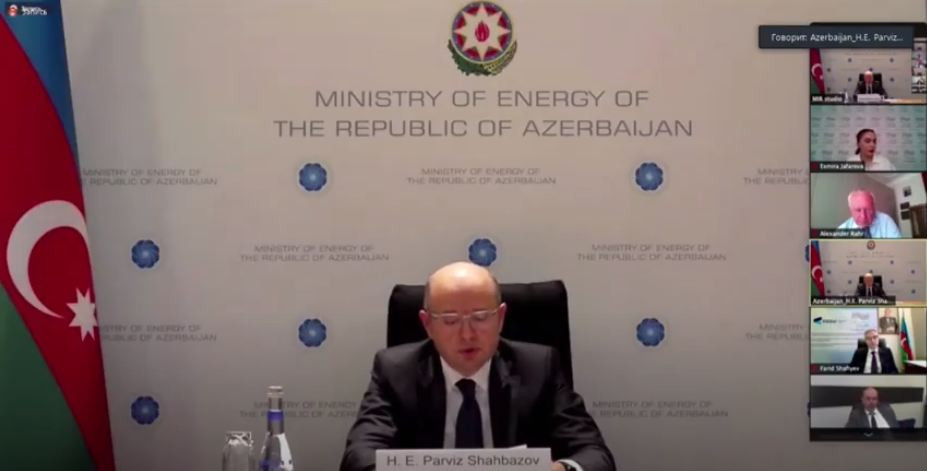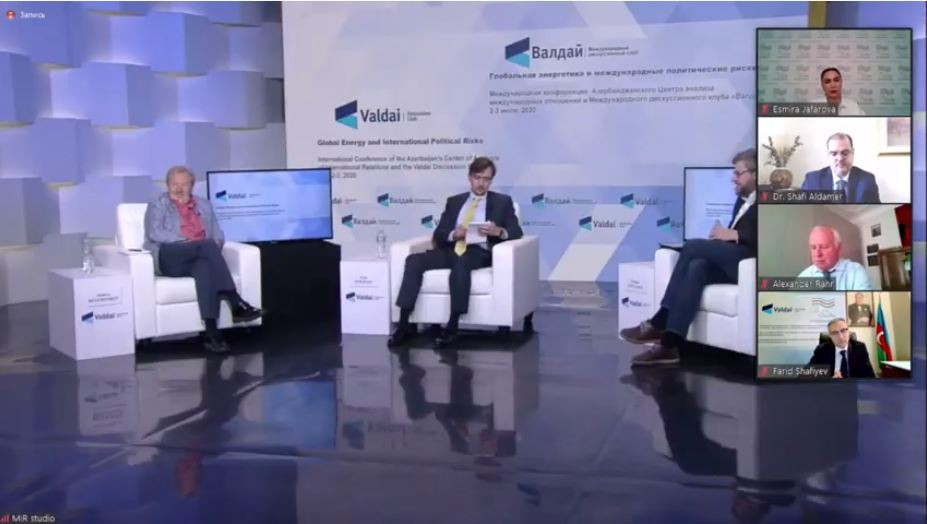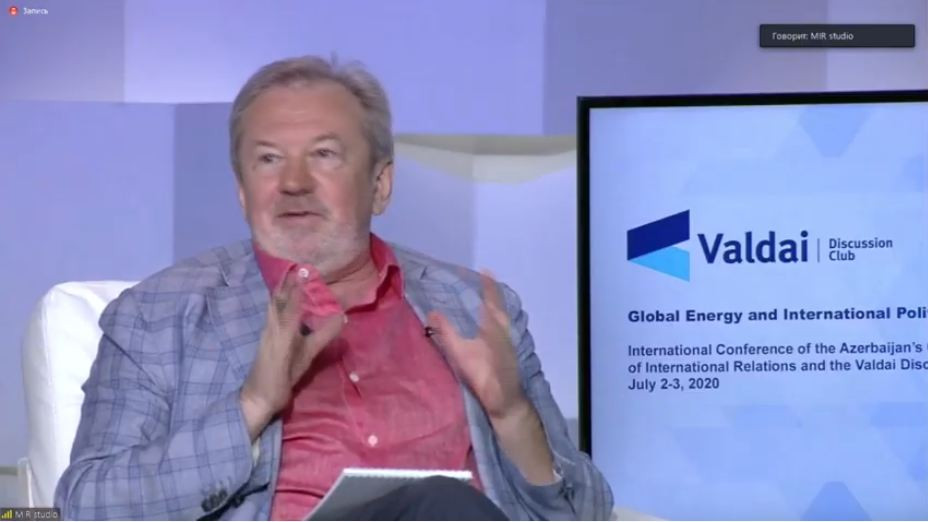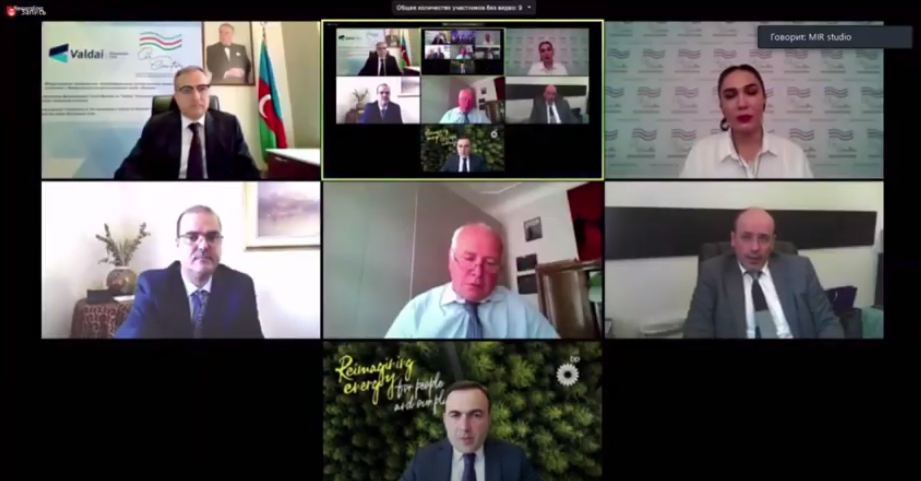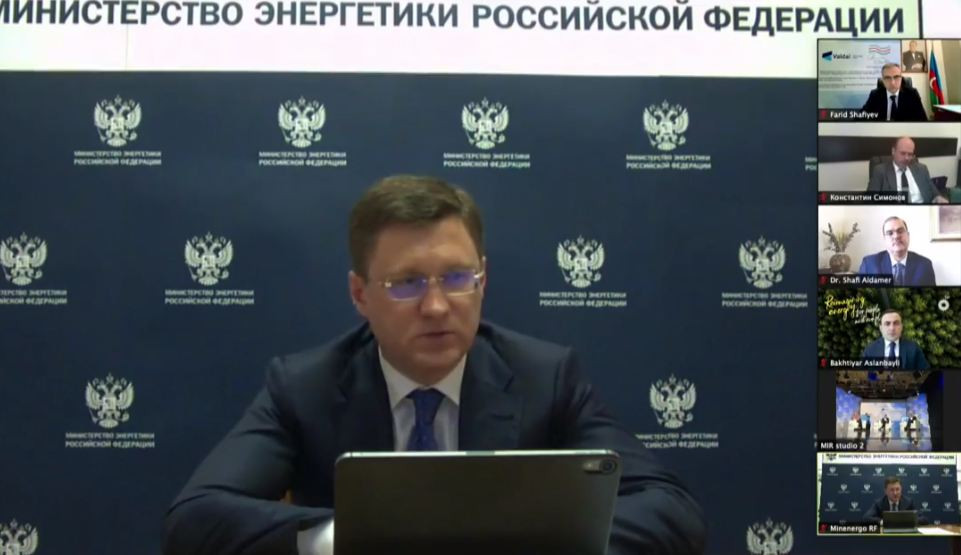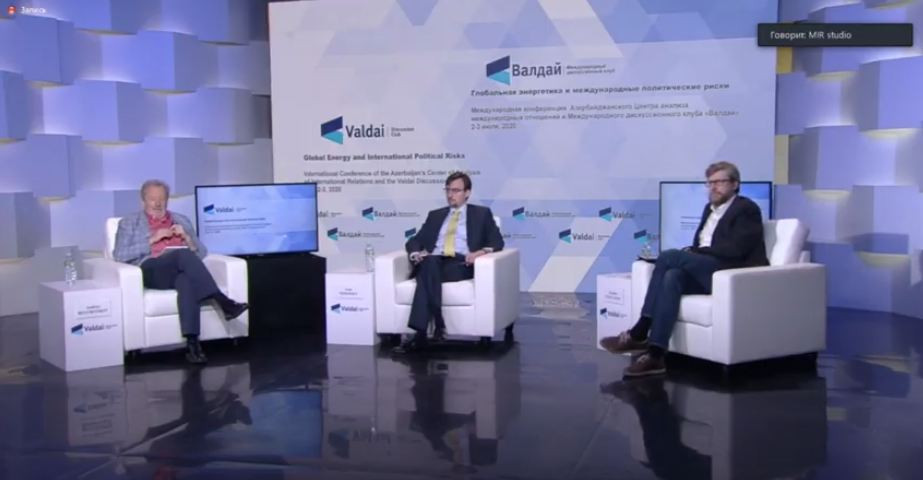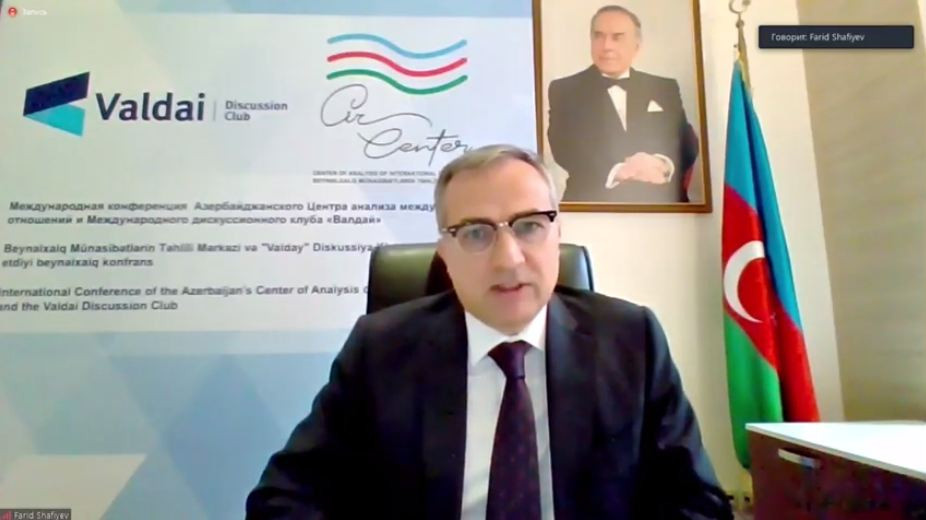An international video conference entitled “Global Energy and International Political Risks” was organized by the Center of International Relations Analysis and Russia's Valdai International Discussion Club on July 2. Speaking at the opening of the event, Andrei Bystritsky, Chairman of the Board of the Valdai International Discussion Club, spoke about the current pandemic crisis in the world, saying that it will take substantial amount of time to return to normal life. According to him, during this period, the world has more clearly understood the importance of energy: “Energy is part of a number of conflicts of various natures. Energy goes hand in hand with political processes. It is impossible to continue life without energy. Discussions in this direction will be held at the conference organized today”.
Farid Shafiyev, Chairman of the Center of Analysis of International Relations, said that energy is of great importance in the life of Russia and Azerbaijan. According to him, cooperation with Russia is very important, especially in the field of energy: “If we look at the history of Azerbaijan's independence, in the 90s there were extensive discussions about competition. At present, competition should be put aside on a number of issues and cooperation should be considered”.
Minister of Energy Parviz Shahbazov during his speech mentioned that “Azerbaijan was one of the first countries to take into account the regulatory mechanisms within OPEC +”. He said that in the current situation, the world should be more open to cooperation and innovation: "We must achieve stable implementation of decisions made as a result of OPEC +. I consider it necessary to expand this format. Azerbaijan is committed to its pledges and will continue to contribute to the stability of the oil market."
The Energy Minister said that oil production and extraction from the sea are connected with the name of Azerbaijan, since in 1899, Azerbaijan was meeting 50% of world demand. Parviz Shahbazov also acknowledged that the appeal of traditional energy sources is not the same as before and highlighted the importance of increasing the role of renewable energy sources: “Azerbaijan’s President Ilham Aliyev has identified increasing renewable energy sources and diversification of energy sources in the country as priority areas. A bill has been prepared in this regard. Steps are being taken to create favorable conditions for attracting the private sector and investment”. Speaking about Azerbaijan-Russia relations, the Minister said that Russian companies have been actively involved in the Shah Deniz and Southern Gas Corridor projects for the past 26 years. According to him, the investment of Russian companies in the oil and gas sector of Azerbaijan is $ 4 billion.
Russia's energy minister, in his speech said that the world economy is facing an unexpected turn of events this year. According to him, this year's GDP is expected to decrease by 5-6 percent, which will have a serious impact on world energy. The Russian minister said that energy can withstand the most serious scenarios: “Despite a sharp decline in demand, we must prevent the crisis due to oversupply. If we had not achieved a significant reduction in production, we would have seen a long-term serious decline in prices and an overall negative trend. The warehouses were likely to be full. OPEC's decision was timely. Currently, the market is sensitive. Therefore, cooperation between producers is very important”.
An expert’s session was held at the event moderated by Fyodor Lukyanov, Scientific Director of the Valdai Discussion Club. Konstantin Simonov, Director General of the Russian National Energy Security Foundation, said that the impact of energy on political processes dates back to the 50s and 60s of the last century. According to him, this became more apparent after the first and second oil crises. However, Mr. Simonov also stated that the politicization of energy has changed recently, due to the shale revolution and the green revolution.
Bakhtiyar Aslanbeyli, BP's Vice President for Communications and External Relations in the Middle East and the Caspian region, spoke about the impact of the pandemic on the global energy market. According to him, despite the difficult economic situation, BP is committed to implementing projects in Azerbaijan: “Our goal is to continue doing business in Azerbaijan for at least the next 30 years. This is done in accordance with the Production Sharing Agreement with the country. However, we must increase the competitiveness of the Caspian Basin so that projects are competitive even at low prices. We are also committed to continuing the Azeri-Chirag-Guneshli "Contract of the Century" project”.
Shafi Aldamer, head of the department at the King Fahd University of Petroleum and Minerals, said that oil was not used in political processes, but rather regulated political processes. According to him, OPEC is a stabilizing factor and there is no monopoly in this organization: “Azerbaijan is trying to stabilize the world economy within OPEC +. I think this format will continue. Countries that do their best in this process do so not to control the market and change the political agenda, but to stabilize the market”.
Esmira Jafarova, a Board Member of the AIR Center, said that it was at the Davos Forum in 2016 that Azerbaijani President Ilham Aliyev initiated the establishment of a forum of non-OPEC countries. She spoke of the rapid decline in demand for oil, also stating that gas was less exposed to it. According to her, renewable energy has also more seriously resisted the crisis. Esmira Jafarova said that without interstate cooperation, it will not be possible to handle these challenges.
Alexander Rar, scientific director of the German-Russian Forum, said that changes in the world market have also led to geopolitical conflicts in the world. He touched on recent discussions over the North Stream 2 project and the threat of US sanctions. According to him, against the background of all this, Germany has privatized energy companies and left them to market laws.
Ivan Timofeyev, program director of the Valdai Discussion Club, said that the United States is currently a leader in the international financial system. According to him, the dollar is the most widely used currency in the world, and Americans use it as a political tool. He said that no matter how willing the EU is, companies that move freely in the market will be subject to US law and move away from the “Nord Stream”.
The event was followed by a question and answer session.
It should be noted that the conference will continue behind closed doors tomorrow.
On the second day of the conference, Azerbaijani Deputy Foreign Minister Khalaf Khalafov, Russian Deputy Foreign Minister Andrei Rudenko, Russian Deputy Energy Minister Pavel Sorokin and Azerbaijani Deputy Energy Minister Samir Valiyev will speak on Russian-Azerbaijani relations, achievements, challenges and prospects for mutually beneficial relations. The conference will also be attended by researchers from the Moscow State Institute of International Relations (MGIMO) Nikolai Silayev, Sergei Markedonov, researcher at the Russian Academy of Sciences Stanislav Pritchin, MP Nizami Safarov, political scientist Tofig Abbasov and Deputy Chairman of the Russian Community of Azerbaijan Anastasia Lavrina.

